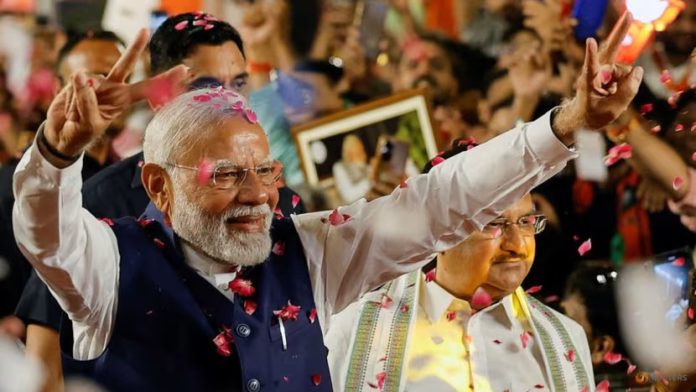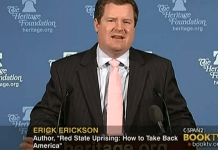Indian Prime Minister Narendra Modi is set to present a coalition agreement to President Droupadi Murmu on Friday, following a closely contested election that saw his Bharatiya Janata Party (BJP) relying on allies to retain power. Despite the BJP’s decade-long rule, the recent election saw a departure from the party’s previous landslide victories, surprising analysts and defying exit polls.
Facing the challenge of securing parliamentary numbers, Modi swiftly engaged in negotiations with a 15-member coalition. This alliance, formed hastily in response to the election outcome, is poised to provide the necessary support for Modi’s government.
Modi, accompanied by leaders of allied parties, is expected to visit President Murmu on Friday to formally seek approval for the formation of the new government. The National Democratic Alliance (NDA), which supports Modi’s bid for a third term, unanimously selected the 73-year-old leader as its head earlier in the week.
With a combined total of 293 seats in the 543-seat parliament, the NDA holds a majority, granting it control over the legislative body.
The unexpected turn of events in the election has stirred significant interest among political observers and the public alike. While the BJP’s dominance seemed assured after a decade in power, the emergence of a coalition government highlights the evolving political landscape in India.
Analysts are closely monitoring the dynamics within the coalition and the implications for Modi’s governance agenda. The need to accommodate diverse interests within the alliance presents both opportunities and challenges for the Prime Minister as he navigates the complexities of coalition politics.
Moreover, the success of the coalition government hinges on its ability to effectively address pressing issues facing the nation, including economic recovery, social welfare, and regional development. As Modi prepares to assume office for another term, expectations are high for his administration to deliver on its promises and address the aspirations of the Indian populace.
The formation of the coalition government underscores the significance of political alliances in shaping the trajectory of governance in India. While the BJP remains a dominant force in Indian politics, the emergence of coalition politics reflects the growing influence of regional parties and the need for collaborative governance.
In the coming days, attention will be focused on the priorities and policy agenda of the new government, as well as its approach to key challenges facing the nation. The success of Modi’s coalition government will be closely watched not only within India but also on the global stage, as the country plays an increasingly prominent role in international affairs.
Overall, the formation of the coalition government marks a significant chapter in India’s political landscape, signaling a departure from the traditional dominance of single-party rule and highlighting the importance of consensus-building and cooperation in modern Indian democracy.























